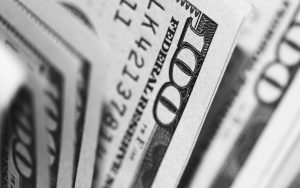Forex, or foreign exchange, is the global market where currencies are traded. It is a complex and dynamic market that is open 24 hours a day, five days a week. While forex can be a lucrative investment opportunity, it is also one of the riskiest financial markets in the world. In this article, we will explore the various ways in which forex is risky.
1. Volatility
Forex is notorious for its volatility. The value of currencies can fluctuate rapidly and unpredictably, making it difficult to make informed investment decisions. This volatility is caused by a variety of factors, including economic news, geopolitical events, and changes in monetary policy.
For example, if a major central bank announces an interest rate hike, it could cause the currency to appreciate rapidly. Conversely, if a country experiences political turmoil, the value of its currency can plummet within hours. These sudden fluctuations can cause significant losses for investors who are not prepared to react quickly to market changes.
2. Leverage
Leverage is a financial tool that allows traders to control a large position with a relatively small amount of capital. Forex brokers offer high leverage ratios, sometimes as much as 500:1, which means that traders can control a $100,000 position with just $200 of capital.
While leverage can amplify potential profits, it can also magnify losses. If a trade goes against a trader, the losses can quickly exceed the initial investment. This can lead to a margin call, which requires the trader to deposit more funds to cover the losses.
3. Counterparty Risk
Forex trading is conducted through a decentralized network of banks, brokers, and other financial institutions. This means that there is always a counterparty involved in a trade. Counterparty risk refers to the possibility that the counterparty will default on its obligations.
For example, if a trader places a trade with a broker who goes bankrupt, the trader may not be able to recover their funds. This risk can be mitigated by choosing a reputable broker and diversifying investments across multiple brokers.
4. Market Manipulation
Forex is a massive market with daily trading volume exceeding $6 trillion. This makes it vulnerable to market manipulation by large financial institutions and governments. These entities can influence the market by placing large orders that can cause significant price movements.
For example, a central bank may intervene in the market to support its currency by buying large quantities of it. This can cause the currency to appreciate rapidly, but it can also create an artificial market that is difficult to predict.
5. Lack of Regulation
Forex is a decentralized market that is not subject to the same level of regulation as other financial markets. While there are regulatory bodies that oversee forex trading, such as the Commodity Futures Trading Commission (CFTC) in the United States, there are many unregulated brokers operating in the market.
These brokers may engage in unethical or fraudulent practices, such as manipulating prices or withholding funds. This lack of regulation can make it difficult for investors to protect their investments and can increase the risk of fraud.
Conclusion
Forex is a dynamic and complex market that offers significant opportunities for investors. However, it is also one of the riskiest financial markets in the world. The market’s volatility, leverage, counterparty risk, market manipulation, and lack of regulation can all contribute to significant losses for investors who are not prepared to manage these risks. Therefore, it is crucial for investors to have a solid understanding of the market and to invest only what they can afford to lose.





